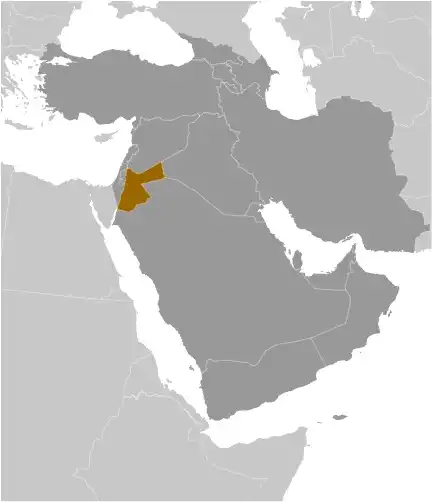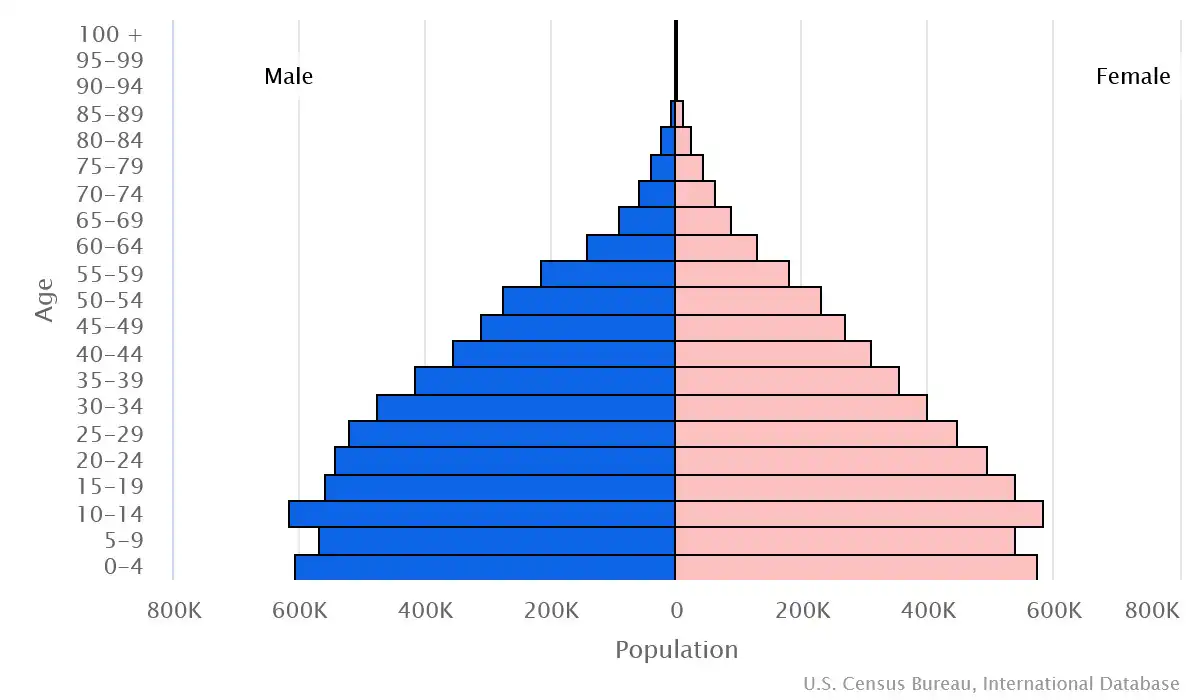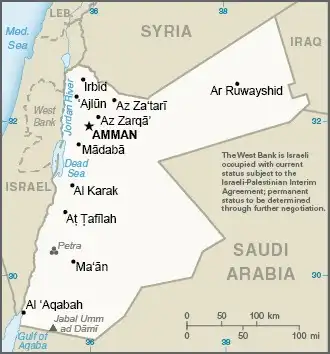
Jordan Country Profile
Key Facts of Jordan

| Government type: | parliamentary constitutional monarchy |
| Capital: | Amman |
| Languages: | Arabic (official), English (widely understood among upper and middle classes) |
Jordan Demographic Data
Ethnic Groups in Jordan(2015 est.)
Religious Groups in Jordan (2020 est.)
Age pyramid of Jordan

Jordan Economy Statistics
Economic overview of Jordan
upper-middle-income Middle Eastern economy; high debt and unemployment, especially for youth and women; global events triggering trade slump and decreased revenue from tourism; growing manufacturing and agricultural sectors; key US foreign assistance recipient; natural-resource-poor and import-reliant
Jordan Real GDP (purchasing power parity) in Billion $
Jordan Real GDP per capita in $
Jordan's Exports & Imports in billion $
Top 5 Import Partnerin 2022 (51%) of Jordan
Top 5 Import Commodities in 2022 of Jordan
- refined petroleum ⛽
- cars 🚗
- gold 💰
- crude petroleum 🛢️
- jewelry 💍
Top 5 Export Partnerin 2022 (53%) of Jordan
Top 5 Export Commodities in 2022 of Jordan
- fertilizers 💩
- garments 👕
- phosphates ⛏️
- jewelry 💍
- phosphoric acid 🧴
Geography of Jordan
Map of Jordan

Land and Water Distrubtion of Jordan
Natural Resources of Jordan
- phosphates ⛏️
- potash 🪙
- shale oil 🛢️
Climate inJordan
mostly arid desert; rainy season in west (November to April)
History of Jordan - a Summary
After World War I and the dissolution of the Ottoman Empire, the League of Nations awarded Britain the mandate to govern much of the Middle East. In 1921, Britain demarcated from Palestine a semi-autonomous region of Transjordan and recognized ABDALLAH I from the Hashemite family as the country's first leader. The Hashemites also controlled the Hijaz, or the western coastal area of modern-day Saudi Arabia, until 1925, when IBN SAUD and Wahhabi tribes pushed them out. The country gained its independence in 1946 and thereafter became the Hashemite Kingdom of Jordan.
The country has had four kings. Long-time ruler King HUSSEIN (r. 1953-99) successfully navigated competing pressures from the major powers (US, UK, and Soviet Union), various Arab states, Israel, and Palestinian militants, the latter of which led to a brief civil war in 1970 that is known as "Black September" and ended in King HUSSEIN ousting the militants.Jordan's borders have changed since it gained independence. In 1948, Jordan took control of the West Bank and East Jerusalem in the first Arab-Israeli War, eventually annexing those territories in 1950 and granting its new Palestinian residents Jordanian citizenship. In 1967, Jordan lost the West Bank and East Jerusalem to Israel in the Six-Day War but retained administrative claims to the West Bank until 1988, when King HUSSEIN permanently relinquished Jordanian claims to the West Bank in favor of the Palestine Liberation Organization (PLO). King HUSSEIN signed a peace treaty with Israel in 1994, after Israel and the PLO signed the Oslo Accords in 1993.
Jordanian kings continue to claim custodianship of the Muslim holy sites in Jerusalem by virtue of their Hashemite heritage as descendants of the Prophet Mohammad and agreements with Israel and Jerusalem-based religious and Palestinian leaders. After Israel captured East Jerusalem in the 1967 War, it authorized the Jordanian-controlled Islamic Trust, or Waqf, to continue administering the Al Haram ash Sharif/Temple Mount holy compound, and the Jordan-Israel peace treaty reaffirmed Jordan's "special role" in administering the Muslim holy shrines in Jerusalem. Jordanian kings claim custodianship of the Christian sites in Jerusalem on the basis of the 7th-century Pact of Omar, when the Muslim leader, after conquering Jerusalem, agreed to permit Christian worship.
King HUSSEIN died in 1999 and was succeeded by his eldest son and current King ABDALLAH II. In 2009, ABDALLAH II designated his son HUSSEIN as the Crown Prince. During his reign, ABDALLAH II has contended with a series of challenges, including the Arab Spring influx of refugees from neighboring states, the COVID-19 pandemic, the effects of the war in Ukraine, a perennially weak economy, and the Israel-HAMAS conflict that began in October 2023.
